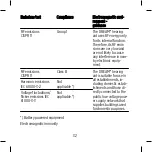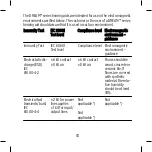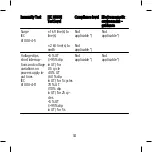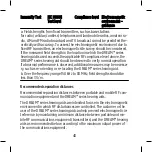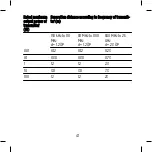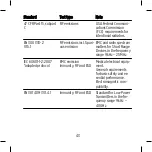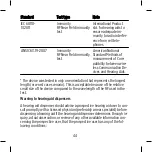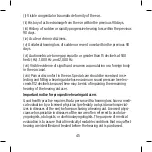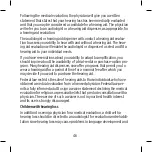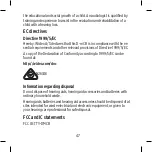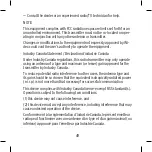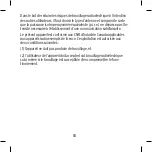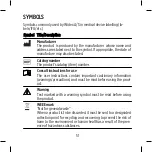
Following the medical evaluation, the physician will give you a written
statement that states that your hearing loss has been medically evaluated
and that you may be considered a candidate for a hearing aid. The physician
will refer you to an audiologist or a hearing aid dispenser, as appropriate, for
a hearing aid evaluation.
The audiologist or hearing aid dispenser will conduct a hearing aid evalua-
tion to assess your ability to hear with and without a hearing aid. The hear-
ing aid evaluation will enable the audiologist or dispenser to select and fit a
hearing aid to your individual needs.
If you have reservations about your ability to adapt to amplification, you
should inquire about the availability of a trial-rental or purchase-option pro-
gram. Many hearing aid dispensers now offer programs that permit you to
wear a hearing aid for a period of time for a nominal fee after which you
may decide if you want to purchase the hearing aid.
Federal law restricts the sale of hearing aids to those individuals who have
obtained a medical evaluation from a licensed physician. Federal law per-
mits a fully informed adult to sign a waiver statement declining the medical
evaluation for religious or personal beliefs that preclude consultation with a
physician. The exercise of such a waiver is not in your best health interest
and its use is strongly discouraged.
Children with hearing loss
In addition to seeing a physician for a medical evaluation, a child with a
hearing loss should be directed to an audiologist for evaluation and rehabili-
tation since hearing loss may cause problems in language development and
46
Summary of Contents for D-m CB
Page 1: ...USER INSTRUCTIONS THE WIDEX DREAM FAMILY D m CB model Behind the ear...
Page 5: ...EC directives 47 FCC and IC statements 47 SYMBOLS 51 5...
Page 53: ...53...
Page 54: ...54...
Page 55: ...55...

